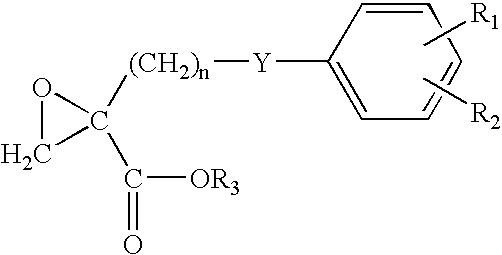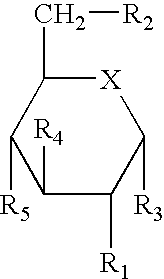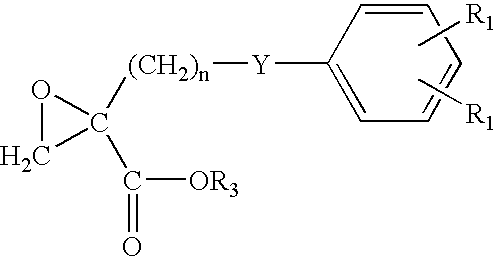Systems and methods for treating human inflammatory and proliferative diseases and wounds, with UCP and/or FAS antibody or other inhibitor, optionally with a fatty acid metabolism inhibitor and/or a glucose metabolism inhibitor
a technology of systems, applied in the field of systems and methods for treating inflammatory and proliferative diseases, wounds, can solve the problems of serious life-threatening diseases, unsatisfactory immune system ability to control cancer, rapid growth of unwanted and potentially dangerous cells, etc., and achieve the effect of accelerating proliferation and increasing the effectiveness of cancer therapy
- Summary
- Abstract
- Description
- Claims
- Application Information
AI Technical Summary
Benefits of technology
Problems solved by technology
Method used
Image
Examples
example 1
[0271] This example illustrates an embodiment of the invention, where multi-drug resistant cancer cells were exposed to compositions of the invention. Analysis of the cells was performed using flow cytometry. The flow cytometry experiments were performed as follows. The cells were harvested, counted, and resuspended as described above. For DNA staining, the cells were washed and resuspended in ice-cold PBS and fixed by the dropwise addition of 95% ethanol. The cells were then incubated for 30 minutes on ice, washed, and resuspended in PBS containing 1% formaldehyde and 0.01% Tween. The cells were incubated with 50 units of DNAse and washed with PBS containing 5% DNAse. The cells were then incubated with anti DNA Fab (166, kind gift of Dr. Susan Wallace, University of Vermont), then washed and stained with a fluorescein conjugated second step anti-mouse immunoglobulin. The cells were then washed and resuspended in PBS / 3% BSA / 1% formaldehyde. The cells were stained for intracellular H...
example 2
[0283] In this example, in vivo experiments were performed on mice in accordance with one embodiment of the invention.
[0284] Highly carcinogenic B16F1 melanoma cells were either exposed (“treated”) or not exposed to cerulenin, then injected into male mice. Experimental protocols, data, and observations from these experiments are shown in Table 3. It was found that mice exposed to untreated melanoma cells developed lethal cancers within a few days. In contrast, mice exposed to melanoma cells treated with cerulenin did not develop lethal cancers during the experiment.
TABLE 3Control GroupMouse #1Day 0 @ 2:45 pm injected with PBS onlyDay 9 No apparent tumors activeDay 12 Picture - see FIG. 5ADay 13 Still no apparent tumors still activeDay 14 Still no apparent tumors still activeMouse #2Day 0 @ 2:45 pm injected with PBS onlyDay 9 No apparent tumors - activeDay 13 Still no apparent tumors-activeDay 14 Still no apparent tumors still activeMouse #3Day 0 @ 2:45 pm injected with PBS onlyDa...
example 3
[0286] Drug sensitive L1210 cells and drug resistant L12100 / DDP cells were cultured in the presence of chemotherapeutic agents overnight. FIGS. 6A and 6B show the levels of cell-surface Fas expression on the drug sensitive L1210 cells (FIG. 6A) and on the drug resistant L12100 / DDP cells (FIG. 6B), as measured by flow cytometry. The drug sensitive cells show increases in Fas as a result of the drug. In contrast, the drug resistant cells are unchanged with treatment. The horizontal axis in each panel shows intensity of the fluorescence and the vertical axis shows the number of cells at each intensity. Peaks which appear farther to the right have higher levels of Fas per cell. Note that the drug sensitive cells have significantly higher levels of cell surface Fas.
PUM
| Property | Measurement | Unit |
|---|---|---|
| pH | aaaaa | aaaaa |
| temperature | aaaaa | aaaaa |
| body weight | aaaaa | aaaaa |
Abstract
Description
Claims
Application Information
 Login to View More
Login to View More - R&D
- Intellectual Property
- Life Sciences
- Materials
- Tech Scout
- Unparalleled Data Quality
- Higher Quality Content
- 60% Fewer Hallucinations
Browse by: Latest US Patents, China's latest patents, Technical Efficacy Thesaurus, Application Domain, Technology Topic, Popular Technical Reports.
© 2025 PatSnap. All rights reserved.Legal|Privacy policy|Modern Slavery Act Transparency Statement|Sitemap|About US| Contact US: help@patsnap.com



